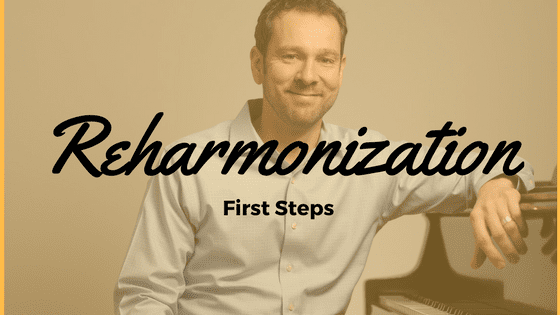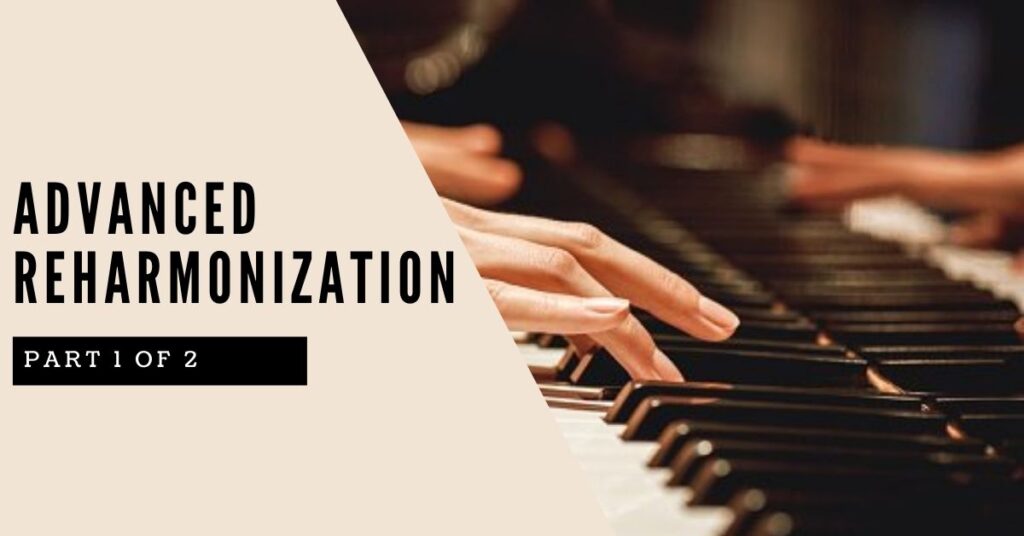“Oh my gosh! How do you memorize all of those notes you just played without any sheet music?” Once in a while I’ll play a gig and someone will come up to me and say something like that. It makes sense that a non-pianist might see my fingers touching a bunch of notes and think to themselves, “How does he remember which notes to play and when?” If I were able to memorize every individual note I play in any given song, it probably would be quite an amazing thing. But the truth is, I don’t memorize songs by memorizing every individual note. My process is based on memorizing a simple formula and breaking a song down into a couple or three chunks. You don’t have to be someone who understands music theory to be able to do this, but this is where I started realizing how helpful a keen understanding of music theory can be in my real-life piano-playing.
Let me describe a quick example of how you don’t need to be a whiz at music theory in order to better memorize tunes. I recently taught a lesson on a great jazz standard “Body and Soul” (look for it on the site in the coming months). The song is 32 measures long with about 2 chords per measure. Add it up and that’s like trying to memorize 64 different chords. But that’s definitely not my process. I have the song memorized (and am able to teach it) in just 16 measures. And I further simplify by breaking those 16 measures into two sets of 8. That’s right, in 8 measures I can have half of the song memorized. Wanna know how? The answer is quite easy, and it doesn’t require a lot of music theory knowledge. “Body and Soul” has a very specific form, referred to as an AABA form, each letter representing an 8-measure section. And since the ‘A’ section repeats three times, I know that all I really have to learn are 16 unique measures of music (8 measures from the ‘A’ section and 8 measures from the ‘B’ section). When I play the song I only need to remember that AABA form, not 32 measures of music. But you’re probably asking, “What about remembering all of those chords?”
Memorizing chords, for me, is also part of a simplification process. This is where music theory can be very helpful. If we talk about chords in terms of their position within a key and their overall direction (in music we use the phrase “chord progressions”) we can much more easily memorize large numbers of chords (this process is referred to ‘harmonic analysis’). And we can use this analysis to transpose the song into different keys. A good analogy might be the difference between memorizing individual words in the English language as opposed to simply memorizing the basic everyday phrases those words can be used to express. If I said to you, memorize this chord progression – Em, A7, F#m, Bm, Gmaj, A7, Dmaj – how long would it take you? What if I then asked you to transpose that chord progression to the key of Ab major? It might take you a while because you have to memorize each chord and transpose them one at a time. But if you are able to view these chords as a formula (ii, V7, iii, vi, IV, V7, I) you would see basic chord progressions (for example, ii – V – I progressions, which are very common in jazz music). I can then take that formula and apply it to any key to more quickly recreate the progression in that key. This requires some practice, but it’s well worth it because it allows me to memorize hundreds of songs at a time. So before you start getting frustrated in trying to memorize all of those funky, twisted, altered chord shapes, spend some time learning more about harmonic analysis. And wouldn’t you know it, we can help you do that!
Check out some of our great videos discussing this topic further:
Analysis, Memorization and Transposition
Memorizing Jazz Tunes

